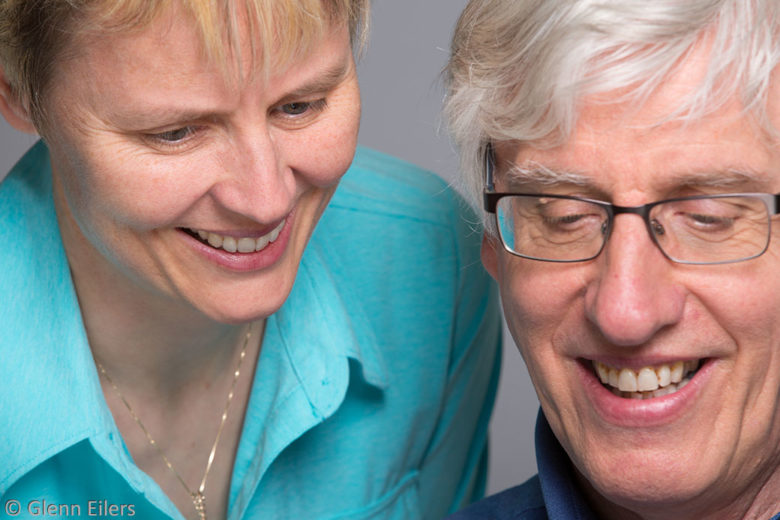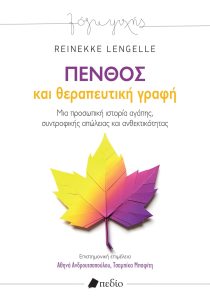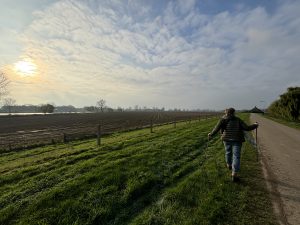Writing the self in bereavement
At the beginning of December 2019, two weeks after Frans’s death, I started writing what I called The Widow Project. This project helped me to explore how writing for healing in grief and bereavement could be done in practical terms.
This work became a full-length book which is now published with Routledge (January 2021).
The idea here is that we can use writing for healing, even in the midst of profound losses.
What I’ve noticed:
1. Writing is a companion and has helped me remain connected to Frans in uplifting ways
2. Writing allows me to observe myself and my grief – even the physical space between me and the words on the screen or page make this witnessing possible
3. Writing has allowed me to turn the grief of loss into reverence, beauty and insight, for myself first and then for others
In the process of writing, I also read the latest research on bereavement. It turns out most people are naturally resilient (great news), but what might we do when grief feels like too much to bear?
The book includes poetry, reflections, narratives of Frans’s illness and the story of our relationship.
It also includes dialogues I wrote to Frans where “he” answered in his familiar way. Those conversations frequently made me cry (in a good way) and reminded me of how precious our bond was. He is still a part of me: his voice is still accessible as is his good advice and support.
The American psychiatrist Milton Erickson said this to his clients when they asked him what they should do when he was not there to help him face life’s challenges on their own, “my voice will go with you…” and so it can be with the bereaved.
Here is a tribute to Frans where I write more about the ongoing conversation:
http://writingtheself.ca/2019/04/03/tribute-to-frans-meijers/
As a grieving spouse, writer, teacher, and social scientist, I explored questions like:
1. What happens to our identities when we lose a partner? Do we lose parts of ourselves? Do we gain/get parts back? What changes and what doesn’t in our “self-story” and how is that reflected in our tellings? Does the beloved become part of us/our identity? How do we let go or solidify particular identities through writing?
2. What (cultural) rules and stories about grief have we internalized and guide our behaviour, attitudes and well-being? (e.g. speak no ill of the dead; appreciate what you had; don’t look like you’re doing too well; love and loyalty mean…fill in the blank; woman are…women aren’t).
What fearful stories may be affecting our well-being and how aware are widows of these unspoken words and rules? How can we become aware and disentangle from prescriptive perspectives that are not only already ingrained in us but are frequently brought to us in the shape of the platitudes of others?
3. What specific issues make grief more challenging after loss and can writing about those topics be beneficial? (e.g. family dynamics, financial struggles, caregiver exhaustion).
4. In what way do practical, creative, or aesthetic pursuits assist in regrounding those who have lost a loved one? (e.g. reading/writing poetry, painting, cooking, gardening, beautifying the house)?
Here is an example of a story of writing and grieving a mother’s loss, where gardening is a theme and metaphor and we learn that activities that we love and do during grief provide a “lens of astonishment”:
https://www.dreamerswriting.com/laura-sergeant/
5. How is having a vocation or an occupation (i.e. an occupational identity) a potentially positive part of going through bereavement?
6. What is the potential of writing for healing in grief and bereavement? What kind of writing supports us?
Along with the writing, reading has been key in developing my perspectives. Frans and I called this the “external dialogue” – a fancy way of saying that we need to get input from outside to help shape our own perspectives and enrich our own stories.
There are many books on grief on the market. Not all of them are equally wonderful! Other widows, I’ve spoken to have told me the same. Some emphasize suffering a lot. Others are filled with the same platitudes we don’t like hearing from people who are trying to comfort us. Then there are the most well-known ones (like Kubler-Ross’s phase models) that have useful insights, but are partly out of date.
I am personally grateful for the work of George Bonnano, professor and grief researcher and author of The Other Side of Sadness, C.S. Lewis (widower and author of A Grief Observed), Jeff Berman (author of Writing Widowhood), and Carolyn Ellis, author of Final Negotiations, where she writes about her great love for her partner Gene Weinstein and his death of emphysema.
It seems that along with my own writing, the words of other poets and writers prepared me and now comfort me. Reading has helped me write my own stories; others’ perspectives were touchstones for me to reach inside myself and reflect, “does this feel true” or “how did I experience that” and “what is useful to me here”?
The reality of Frans’s death continues to reverberate in my life – even though we lived his illness journey very consciously and he died in my arms, his absence sinks in and becomes integrated incrementally.
The death of a spouse is an ending, not only to a life but to a joint world shared only with one special person. We can participate in authoring our own new chapter and that story will include the love that remains.



